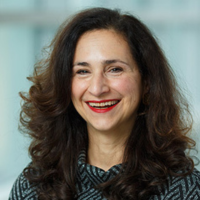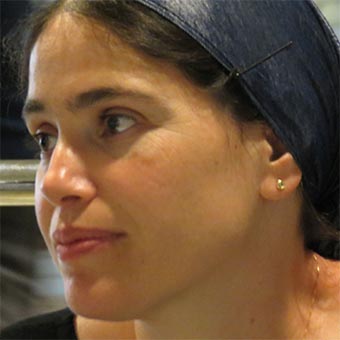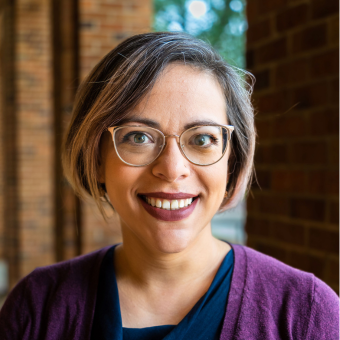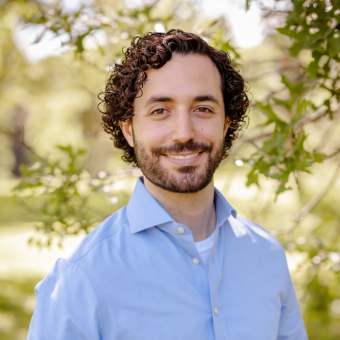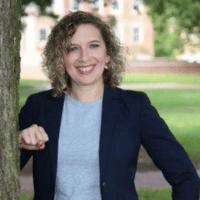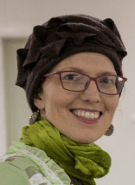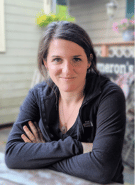HBI at the Association for Jewish Studies Conference, December 2024
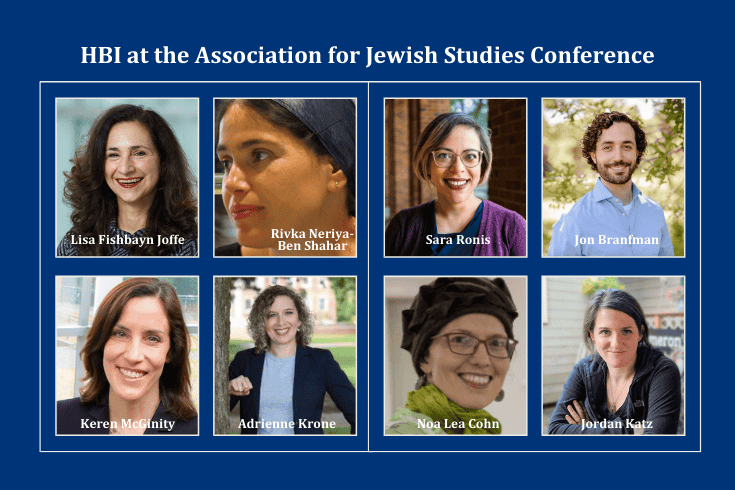
HBI is proud to announce that our director, Lisa Fishbayn Joffe, and several of our current scholars in residence, research associates, and authors will be presenting, leading panels, and participating in roundtable discussions at the upcoming Association for Jewish Studies Conference, Dec. 15 through 19. Below are their contributions to this year’s conference.
Shulamit Reinharz Director of the Hadassah-Brandeis Institute
Panel
East European Jews Navigating Marriage in Migration to the Americas in the Early Twentieth Century
Tue, December 17, 8:30 to 10:00am EST, Virtual Zoom Room 02
How did mass migration shape how Eastern European Jews understood marriage and divorce? How did law, religion, and community mediate their treatment of family formation and separation? This panel answers these questions by looking at Jewish emigration from Eastern Europe to the Americas (the US and Argentina) through the lens of marriage and divorce. It explores their struggles and strategies to overcome difficulties, such as immigration restrictions for Jews and women from Eastern Europe, mismatched legal systems between Eastern Europe and the Americas, and abuse in the family. Looking at the intersection of family, law, gender, and migration, the panel interrogates the meaning of marriage as a social and legal category in the early 20th-century Americas, the functions of family and other social networks in migration, and the role of other institutions (such as press, welfare organizations, and courts) in mitigating the family troubles.
Sapir Academic College, HBI Research Associate
Event: Israeli Education: Ethnicity and Music....
Thriving with digital disconnect: Jewish Ultra-Orthodox and Ethiopian immigrants communities realize their capabilities despite limited and indirect Internet use
Tue, December 17, 8:30 to 10:00am EST, Virtual Zoom Room 04
Avoidance of Internet and communication technologies used by members of closed religious communities might result in deficient resources or skills and therefore be considered a disadvantage. However, as this study will demonstrate, limited access to the Internet by members of the Jewish Ultra-Orthodox and Ethiopian Immigrants communities can provide valuable social advantages at the individual, familial, and communal levels. The central goal of this study, based on Sen’s capabilities approach, is to determine the general and specific strategies used by the members of these closed religious communities to access information, thereby enabling the various community members to maximize their capabilities. The primary contribution of this study of fifty in-depth, semi-structured interviews (25 in each community) is a comparative investigation demonstrating that despite the disadvantages, the religious, cultural, and social capital strategies operating within social networks, provide agency and empowerment.
St. Mary’s University, HBI Research Associate
Roundtable
Personhood in Jewish Thought
Tue, December 17, 1:30 to 3:00pm EST, Virtual Zoom Room 12
This roundtable will gather scholars working on aspects of human, fetal, animal, and artificial personhood to explore the convergences and divergences of our research, as a step toward such a grounding of an improved discourse on personhood.
Sara Ronis will offer insights from her work on the complexities of fetal personhood in the Babylonian Talmud, proposing a model of fetal personhood that is shaped by literary and legal contexts.
Stanford University, HBI Research Associate
Event: Children’s Culture and Ideological Formation
“This is Your Bar Mitzvah, Goldberg!: Jewish Losers, White Gentile Male Saviors, and ‘Unthreatening’ Egalitarianism in The Mighty Ducks Trilogy”
Tue, December 17, 1:30 to 3:00pm EST, Virtual Zoom Room 10
Jewishness plays a central but unrecognized ideological role in the blockbuster Disney children’s hockey film trilogy, The Mighty Ducks (1992-1996). This trilogy, which remains nearly unstudied in the literature on children’s films, sports films, and Jewish film representation, specifically deploys tropes of comedic Jewish emasculation to underpin its wider fantasies about taming feminist and multicultural progress. In particular, I reveal how this ideological labor falls on the team’s fat and klutzy Jewish goalie, who is always addressed by the conspicuously Jewish mononym, “Goldberg.” I argue that as a sidekick and foil to the team’s white gentile male captain, Goldberg vitally enables the trilogy to articulate a new moral order of “proper” relations between white gentile men and minoritized people: an order that repackages white gentile male dominance in benevolent-looking new forms, rather than disrupting that dominance. Even when Goldberg is not onscreen and seems marginal to the plot, his role as a Jewish foil always delineates the film’s core fantasy of sustaining a “sweeter” white gentile male patriarchy over people who are women, people of color, and/or Jews. To construct this narrative and visual analysis, I link prior scholarship on Jewish emasculation (by Daniel Boyarin, Ann Pellegrini, and Sander Gilman) with scholarship on race, gender, and sexuality within children’s films and sports films (such as work by Aaron Baker, Julia Lee, Ian Wojcik-Andrews, Ron Briley, Seán Crosson, and Emma Poulton). These new dialogues extend Jewish studies, gender studies, critical race studies, and media studies to clarify how antisemitic subtext can pervasively underpin the ideological apparatus of children’s sports films--including films that seem earnestly liberatory.
Shulamit Reinharz Director of the Hadassah-Brandeis Institute
Gender and Sexual Politics in Light of Rising Religious Fundamentalism and Illiberalism in Contemporary Israel: Theological, Legal and Sociological Perspectives
Wed, December 18, 10:30am to 12:00pm EST, Virtual Zoom Room 09
Roundtable
Contemporary Israeli society is rocked by illiberal, conservative, and religious fundamentalist trends, which merge recent innovations with historical legacies. This roundtable delves into this complex terrain, focusing on how it influences gender and sexuality, and their entanglement with nationalism and religion. We argue such cultural and political forces are reshaping the Jewish-Israeli landscape, and perhaps the trajectory of Judaism itself. Central to our discussion is the global emergence of "anti-gender ideologies," which garnered momentum around the world amid a surge of illiberal populist movements and regimes. The Jewish-Israeli context underscores the multifaceted challenges facing proponents of gender equality and sexual rights, and how these are influenced by both national and transnational forces. Bringing together interdisciplinary perspectives, this roundtable unpacks the theological, legal, and sociological dimensions of these dynamics in Israel.
St. Mary’s University, HBI Research Associate
Panel (chair)
Negotiating Disability within Jewish Tradition: Interpretations, Rabbinic Discourses, and the Modern Religious Self
Wed, December 18, 1:30 to 3:00pm EST, Virtual Zoom Room 15
To consider three papers that explore how religious texts and interpretations shape the understanding of disability and religious practice.
United Synagogue of Conservative Judaism, HBI Research Associate
Roundtable
Intermarriage – Bridging Academic and Communal Voices
Wed, December 18, 3:30 to 5:00pm EST, Virtual Zoom Room 11
Recent population data makes clear that intermarriage has been steadily on the rise for decades (Pew Reports on Jewish Americans, 2013; 2020). Both Jewish scholars and Jewish communal leaders warned about the dangers of intermarriage for many years, but recent scholarship and communal programming has made a shift. For example, Jewish feminist scholarship makes the argument that sociological and demographic research was often tainted with sexist expectations around reproduction (McGinity, 2020), and organizations like 18Doors, Judaism Unbound, and many others are upholding intermarriage as a positive force in Jewish life. Rethinking traditional narratives about intermarriage in scholarship and community means interrogating previous assumptions and having brave conversations about where we have been, where we are, and where we wish to go. This roundtable hopes to foster one such conversation and model what it means to actively challenge and change previously held perceptions.
Dr. Keren McGinity will offer ideas of how we move both scholarship and communal leadership forward towards inclusion.
Allegheny College, HBI Scholar in Residence
Roundtable
Judaism and Science: New Directions
Thu, December 19, 10:30am to 12:00pm EST, Virtual Zoom Room 12
Drawing on critical insights and tools from science and technology studies (STS), religious studies, sociology, anthropology, and history, our presenters will collectively demonstrate that negotiations of science and religion are shaped by political power, which manifests in different ways in particular nation-state contexts.
The discussion will be rooted in ethnographic research conducted in Israel the US among Orthodox and non-Orthodox communities and will address the following questions: How does a comparative approach contribute to a more nuanced understanding of Jewish negotiations of science and religion? What epistemological and theological discourses influence science and religion as it is lived and studied? How do different social-political settings manifest in Jewish interpretations of science? And, what are the broader ramifications of these divergences?
Efrata College, HBI Scholar in Residence
Event: Performing Identity
Between the Worlds: A New Genre in Contemporary Jewish Art
Thu, December 19, 10:30am to 12:00pm EST, Virtual Zoom Room 10
The proposal will expose cohorts (Manheim, 1952) of select artists belonging to the American "Hippie generation". They were influenced by the 1960s/70s spiritual revivals of the counterculture. As their spiritual awareness evolved, they turned to Orthodox Judaism, and then immigrated to Israel, where they continued to develop their artistic careers.
For almost 50 years, they operated "under the radar," on the periphery of the local art scene, because Israeli historiography neglected them.
This study challenges the art history discipline to widen its focus on contemporary Orthodox groups and to map their unique features. It requires a methodological approach that treats them as an independent interpretative community with unique access to art, both sociologically and religiously. The core concept emphasizes religious practice and ideology above art or the individual.
The proposal will focus on how these artists function as cultural agents who combine spiritual expression - influenced by their unconventional past - with the spiritual Jewish theology (specifically Kabbalistic) aspects of their art. The paper will examine how this sector came to create a unique visual culture, named Visionary Jewish Art.
University of Massachusetts Amherst, HBI Scholar in Residence
Panel
Works-in-Progress Group in Jewish Studies
Thu, December 19, 1:30 to 3:00pm EST, Virtual Zoom Room 07
This session is an informal, highly collegial gathering in which a group of AJS participants workshops two pre-distributed papers.
The aim is to engage with current research in any and all fields of Jewish Studies and to allow presenters to share papers in progress with a welcoming and critically productive group of colleagues. Works-in-Progress is always an interdisciplinary environment wher to discuss two papers from different disciplines within Jewish Studies (this year is by a medieval Jewish historian and a specialist in the modern Yiddish press) and where scholars from numerous fields take part in the conversation.
Stanford University, HBI Research Associate
Censorship & Self-Censorship in Modern Jewish Cultures
Thu, December 19, 3:30 to 5:00pm EST, Virtual Zoom Room 08
This roundtable explores the nexus of censorship and self-censorship in modern Jewish cultures, analyzing the ways in which different combinations of power, privilege, and fear have shaped modern Jewish film, literature, and the press.
The session brings together scholars in different fields, time periods, and languages. Jonathan Branfman, a scholar of Jewish racialization, gender, and sexuality in visual culture, focuses on cinematic “passing” narratives as sites of self-censorship, in which a Jewish actor’s or character’s body becomes the anxiously censored text in U.S. films.
